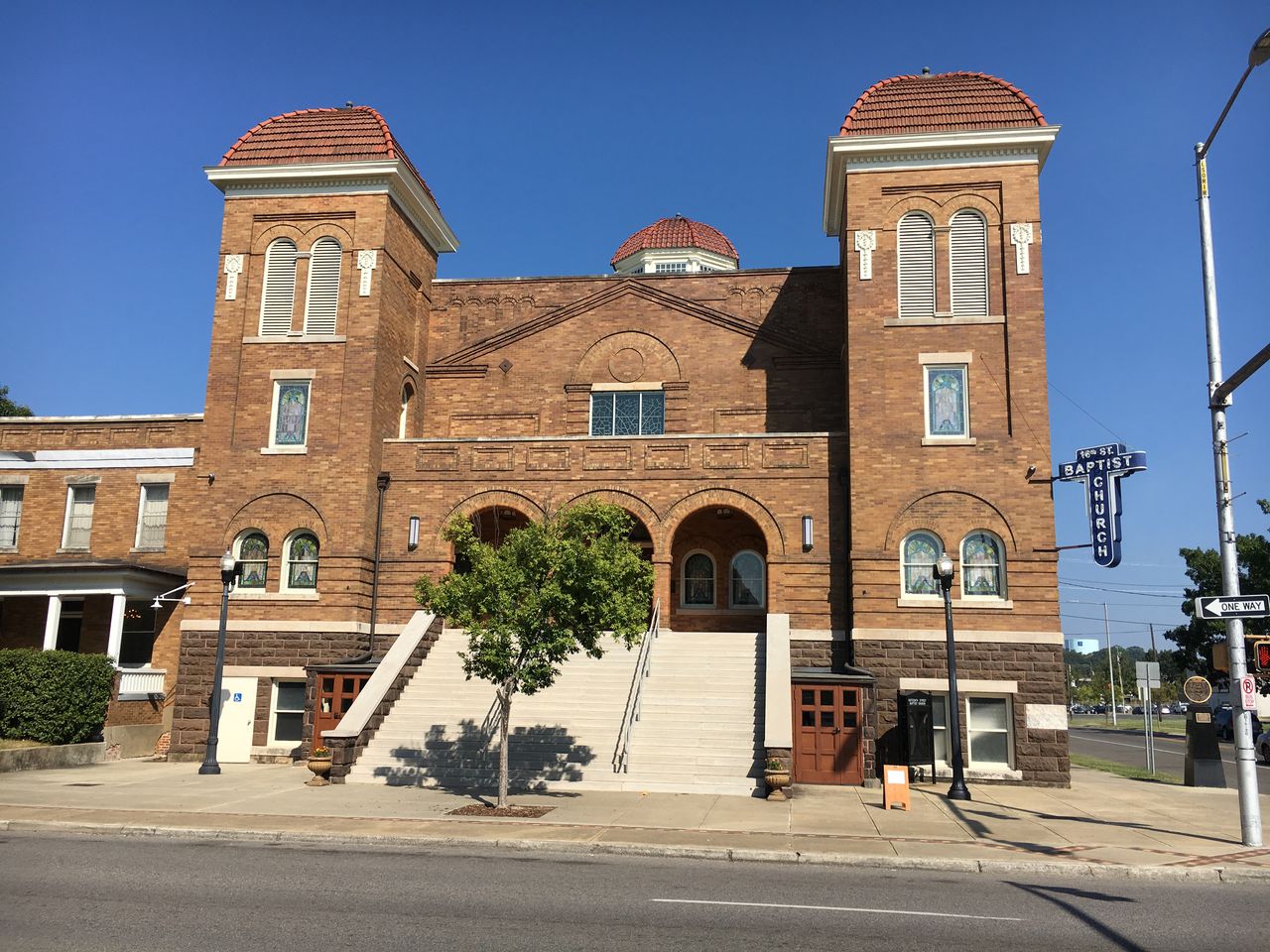Memory of civil rights movement must inform journalism: âFight that fightâ
Lisa McNair said one of her earliest memories was hearing people talk about the tragic death of her sister, Denise McNair, in the 16th Street Baptist Church bombing on Sept. 15, 1963.
“My first and oldest memory is that my sister was killed in the church by white people because they didn’t like Black people,” McNair said. “It is part of who you are constantly.”
McNair was part of a panel discussion “From Four Little Girls to Tyre Nichols: Birmingham and the Evolution of Coverage of Civil Rights Movements” on Friday during this year’s annual meeting of the National Association of Black Journalists. The panel looked at the importance of honoring history throughout news coverage, and how to cover current efforts for civil rights and social justice.
2023 marks the 60th anniversary of Birmingham’s summer of change, a momentous year that marked a turning point in the civil rights movement. This year is also historic as it is the first year the National Association of Black Journalists convention was hosted in Birmingham – the hub of the civil rights movement.
Read more: Help AL.com journalists tell the story of Alabama in 1963.
In McNair’s book, “Dear Denise: Letters to the Sister I Never Knew,” she discusses what her life was like as a part of the first generation of Black people allowed to move freely within the nation and the happenings of her own household and neighborhood after the death of the four young girls who died in the bombing.
“For me and my sister, we just want to make sure we honor her name, we honor our parents, we let people know that this story was pivotal and that we don’t need to forget it,” McNair said, referring to her sister, Kimberly McNair, who was also born after the bombing.
The panel also featured AL.com’s Director of Content Development and Pulitzer finalist Roy S. Johnson and Pulitzer Prize winning journalist John Archibald, who both stressed the importance of honoring history.
“When anyone is trying to rewrite the earlier drafts of history and rewrite the facts of history, they must be called out for it,” Johnson said. “We simply cannot let this happen. It is incumbent upon us to fight that fight.
Archibald said newsrooms across the city, which were primarily white throughout the 1960s, aided and abetted law enforcement in the oppression of Black people.
“It is not that we have become so good, it is that we used to be so bad,” Archibald said to a crowd of fellow journalists and business professionals as they nodded and agreed.
Violence against Black people has been embedded in the city’s history. In the last 80 years, there have been 500 people killed by the hands of police, with eight out of every 10 of the victims being Black men. Most of these cases were ruled justifiable without any investigation, journalists said.
There were multiple bombings between 1945 and 1965 with the intention of killing Black people.
“I grew up like most white people in Birmingham, completely oblivious to what was going on around me,” Archibald said, noting he was born around the same time the “Letter from a Birmingham Jail” was written, though he was never taught about the letter’s significance in school.
Archibald said he was in high school when Bonita Carter was shot and killed by a Birmingham police officer. Original reports on the case were largely untruthful, reporting her murder as a justifiable homicide. He said journalism became very personal to him after this revelation.
The panel also featured the expertise of Jefferson County Judge Shanta Owens as she shared her experience in criminal justice.
Owens said criminal justice has evolved since 1963 as members of law enforcement who commit acts of violence against Black people are now being held accountable for their actions. Though cases in which officers being prosecuted for brutality are not abundant, there was a time when they were nonexistent.
Denise McNair’s killer was not prosecuted until 1977, 14 years, after the bombings. Some of the participants, members of a white supremacist terrorist group, the Ku Klux Klan, died before being brought to justice.
“The bench has changed, particularly in Jefferson County. The bench reflects the community. We have a primarily African American bench,” Owens said. “I do believe that when people who are in charge reflect the community, justice is distributed more evenly.”
Owens said when she started as a criminal courts judge in 2008, the bench was majority white. She said she has worked hard to ensure her community is served fairly.
“With African American men, I think they come into the courtroom now feeling like they will be heard, justice will be done, and there will be some indication of fairness,” Owens said.
The panelists agreed 1963 is a time to be remembered and honored as both a year devastation and revolution. In the memory of Denise Carter and the legacy of the civil rights movement, there are stories imperative to Birmingham’s past and its future.
“Journalism matters, good journalism matters,” Owens said. “It helps to dispense justice when there is good journalism casting a light on things the public needs to be aware of.”
